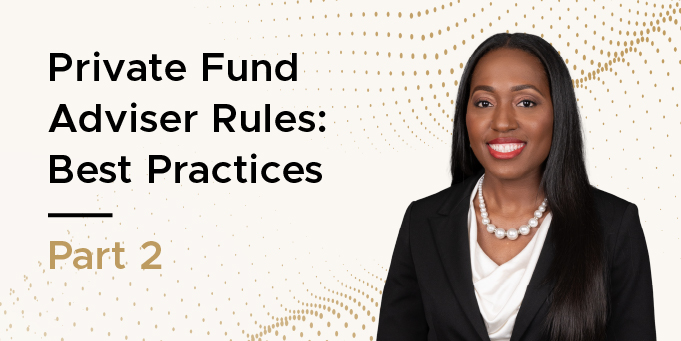
Partnerships Remain High on the IRS Radar (Part 2)
- Published
- Aug 4, 2020
- By
- Miri Forster
- Topics
- Share
Partnership examinations are likely to increase now that IRS exam activity has resumed as of July 16. With the centralized partnership audit regime of the 2015 Bipartisan Budget Act (“BBA”) in full force, the IRS has issued interim guidance outlining BBA exam procedures and is training its agents on a number of substantive partnership tax issues. Adjustments from a BBA exam can significantly alter the economics between a partnership and its partners, because the adjustments are reported in the adjustment year rather than the year under review.
See our companion article, “Partnerships Remain High on the IRS Radar (Part 1)” for information on the Bipartisan Budget Act Audit Roadmap recently released by the IRS. To help prepare for the increase in IRS activity, we discuss a number of recent IRS exam trends impacting partnerships and some expectations for the future.
Partnerships and Self-Employment Tax
IRS exam teams are actively focused on limited partnerships with limited partners who claim they are exempt from Self-Employment Contributions Act (“SECA”) tax under Sec. 1402(a)(13). According to the IRS, certain individual partners—including service partners in service partnerships organized as state law limited liability partnerships (LLPs), limited partnerships (LPs) and limited liability companies (LLCs)—have inappropriately claimed to qualify as limited partners who are exempt from SECA tax.
The IRS position is premised on IRS guidance and court cases involving LLCs and LLPs that are treated as partnerships for U.S. tax purposes. In Renkemeyer, Campbell & Weaver LLP v. Commissioner (136 T.C. 137 (2011)), the Tax Court held that an attorney and a partner in an LLP was not a limited partner for purposes of Sec. 1402(a)(13) because he was active in his law firm and, therefore, was subject to SECA tax on his distributive share of income.
In Chief Counsel Advice (CCA) 201436049, issued to an investment management LLC that received fees for investment management services, the CCA concluded that the LLC members were not limited partners for purposes of Sec. 1402(a)(13), and their distributive share of income was subject to SECA tax. Under the facts of the CCA, the LLC had previously converted from an S corporation and the members worked full time in the business. Similarly, in Castigliola v. Commissioner (T.C. Memo. 2017-62), the Tax Court held that partners in an LLC law firm working full time providing services and overseeing employees were subject to SECA tax on their distributive shares, because they were not limited partners for purposes of Sec. 1402(a)(13).
Currently, there are no cases to suggest that Sec. 1402(a)(3) may not apply to a limited partner in a traditional limited partnership. In 2015, the IRS raised this issue in a Tax Court petition filed in Sands v. Commissioner (Docket 5650-15, May 8, 2015), where the IRS asserted a SECA tax liability on approximately $18 million of partnership income allocated to Sands, as a limited partner, from an LP. Subsequently, the IRS withdrew the case with no deficiency. More recently, amendments to Sec. 1402(a)(13) were proposed as part of the 2017 Tax Cuts and Jobs Act (“TCJA”) that would have repealed the LP exemption. None of those amendments were incorporated into the TCJA as enacted.
Sale of a Partnership Interest
The IRS has also initiated a campaign focused on the sale of a partnership interest. The examinations are focused on partnerships that either do not report the sale or fail to report gain or loss from the sale correctly. Generally, the sale of a partnership interest results in capital gain or loss. If the partner holds the interest for more than one year, the long-term capital gain tax rate is usually 20%. But partnerships with appreciated collectibles at the time of the sale or ones that depreciate real property may be subject to higher capital gains rates of 28% or 25%, respectively. Alternatively, a partnership with inventory items or unrealized receivables at the time of the sale may have ordinary gain or loss.
The sale of a partnership interest is reported on Form 8948 (Sales or Other Dispositions of Capital Assets) or Form 8303 (Report of a Sale or Exchange of Certain Partnership Interests). Changes to the Schedule K-1 for 2019 will further highlight the issue, since partnerships are required to note on a partner’s Schedule K-1 when the partner interest was reduced as a result of the sale of a partnership interest and to separately provide information on sales attributable to “hot assets” under Sec. 751.
While not specifically mentioned in the IRS campaign, international tax provisions, such as Secs. 864(c) and 1446(f) enacted by the TCJA, could be natural extensions of the IRS review. Treasury and the IRS have recently highlighted the importance of international tax matters in proposed changes to partnership tax forms for 2021 that would apply to partnerships with foreign activities or foreign partners. Sec. 864(c) generally provides that gain or loss of a nonresident alien or foreign corporation for the sale, exchange or other disposition of a partnership interest is treated as effectively connected income (“ECI”) to the extent the transferor would have ECI at the time of the sale. Sec. 1446(f) requires that the transferee of a partnership interest withhold 10% of the amount realized on the transferor’s disposition of a partnership interest if any of the gain would be treated as effectively connected gain. For other areas of IRS focus under TCJA, see “IRS Exam Activity Resumes After July 15, 2020—Are You Ready?”
Reporting of Income Deferrals Under Section 457A
The IRS has also initiated exams to verify partnership compliance with the requirements of Sec. 457A. This compliance initiative is especially relevant to hedge funds which, prior to 2009, commonly deferred receipt of management and performance fees received from an offshore fund.
Sec. 457A was enacted to limit a partnership’s ability to defer compensation earned after 2008. Deferrals pre-2009 were exempt from Section 457A, but were subject to a transition rule that required the deferred amounts be included in income no later than 2017. While most Sec. 457A campaign examinations are in the preliminary information-gathering stage, it is possible the IRS could extend its review to whether a partnership has complied with the deferred compensation rules in Section 409A. Sec. 409A governs the timing of deferral elections and related payments and imposes an additional 20% excise tax if the rules under Sec. 409A are not met.
With the expected rise in BBA partnership exams, audit readiness is crucial. Contact your tax advisor for additional information on these or other enforcement trends and to discuss how best to prepare for the increase in IRS activity.
OUR CURRENT ISSUE: Q3 2020
- Hybrid Funds
- Private Equity Managers: Are Your Portfolio Companies Properly Evaluating Assets for Impairment?
- Risk Alert from the Office of Compliance Inspections and Examinations Relating to Compliance Matters of RIAs that Manage Private Equity Funds or Hedge Funds
- Partnerships Remain High on the IRS Radar (Part 2)
- A Snapshot of the Aircraft Leasing Industry in Ireland
- EisnerAmper Q&A with Antonella Puca, Senior Director, Alvarez & Marsal Valuation Services
What's on Your Mind?
Start a conversation with Miri
Receive the latest business insights, analysis, and perspectives from EisnerAmper professionals.












